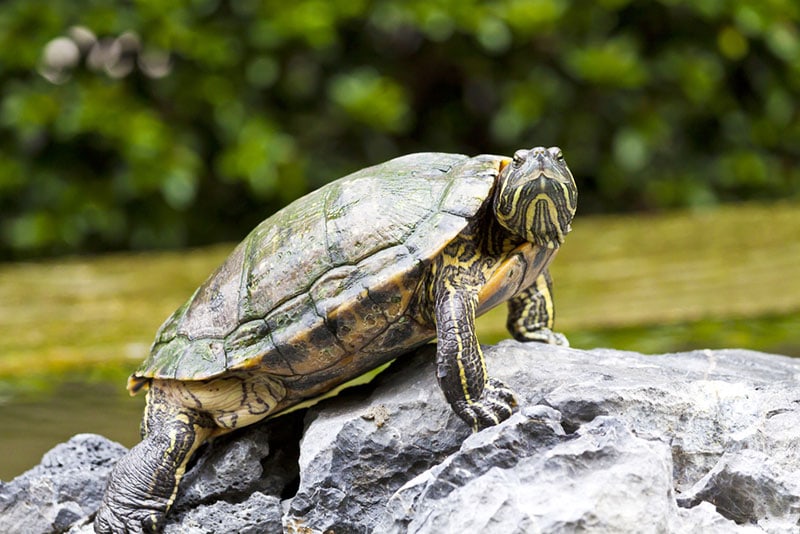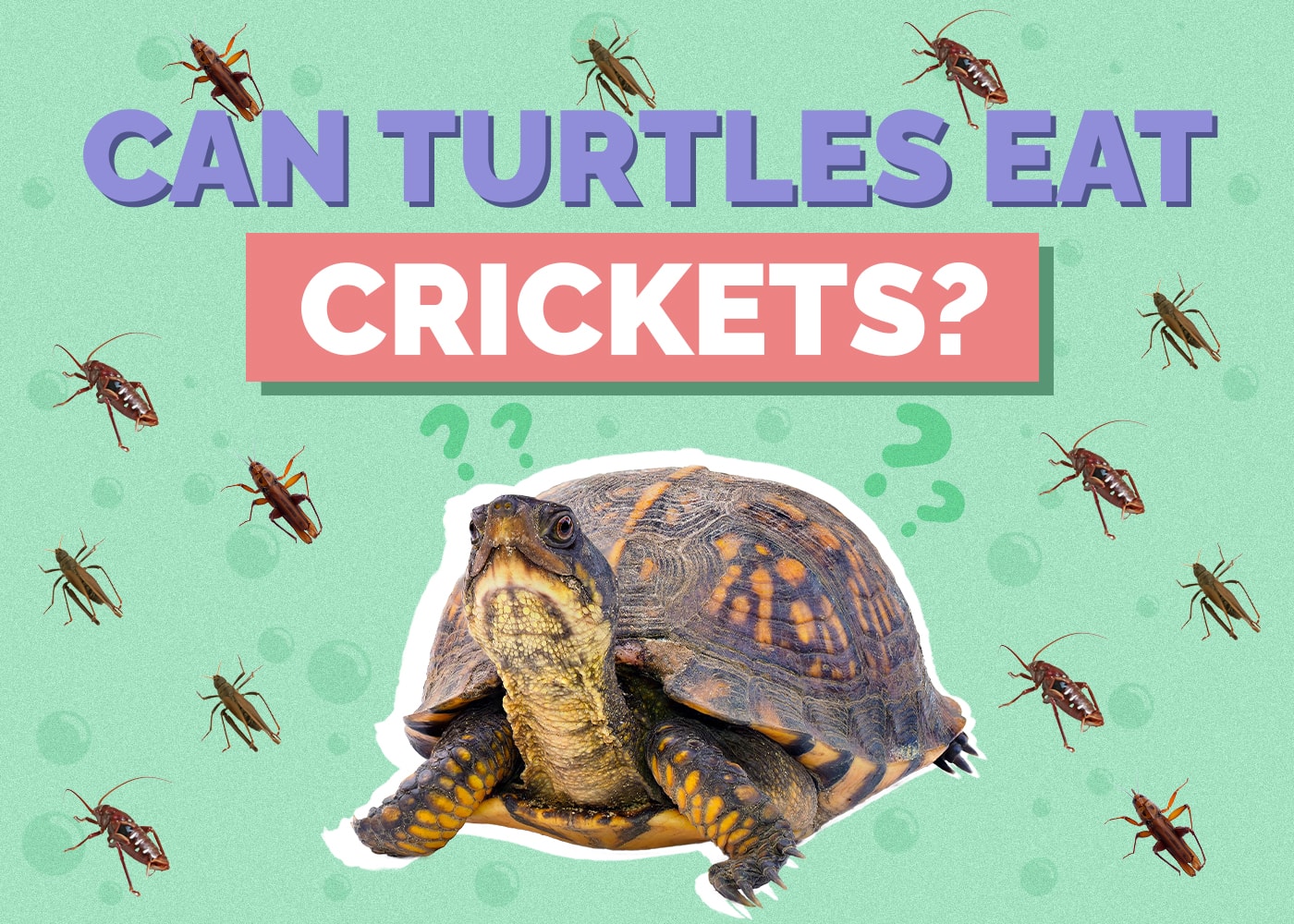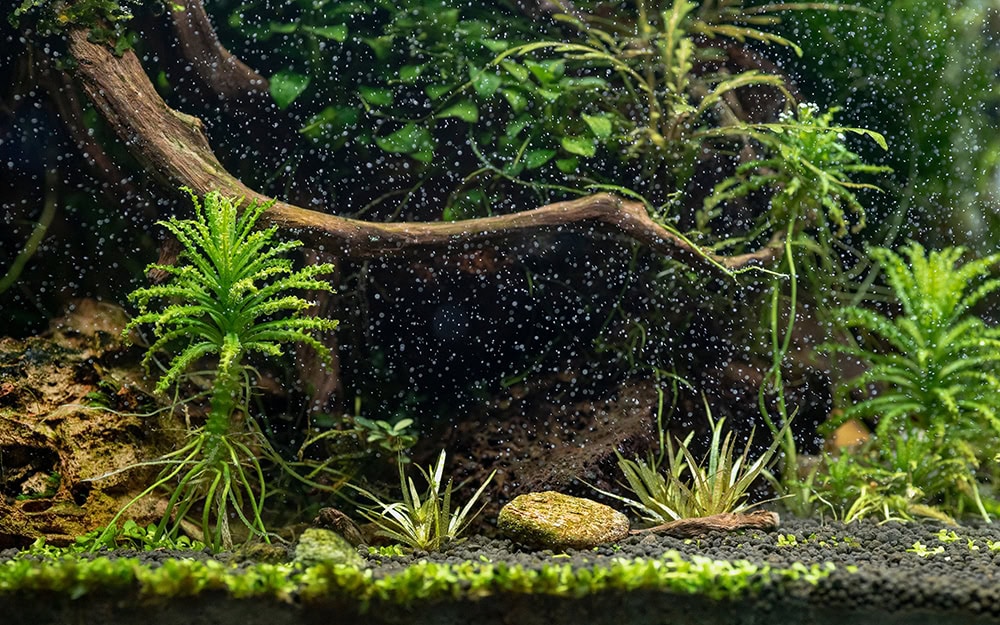How Long Can Tortoises Go Without Food? Vet-Reviewed Facts & FAQ

By Misty Layne
Updated on
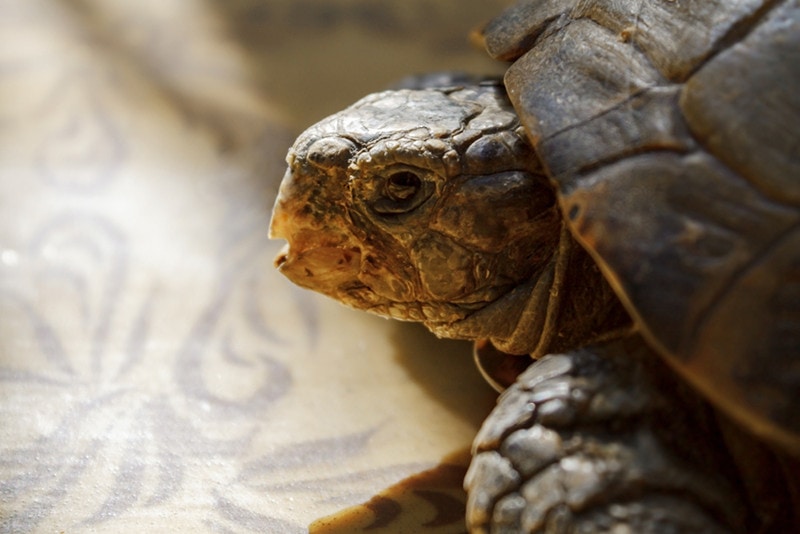
Tortoises have become popular pets because they are quiet, cute companions that are great for allergy sufferers. They don’t need to be taken for a daily walk, but they do require a bit of work and planning. One handy thing about tortoises that you don’t get with a dog or cat, is that you can go on a weekend trip, leaving your tortoise on its own, and it will be perfectly okay.
However, if you’re planning a longer trip where you’ll be away from home for a bit, you’re probably wondering just how long a tortoise can go without food. After all, if you are gone longer for a weekend, you’ll need someone to come to feed it, right? It might surprise you to learn that in certain situations, some turtles can actually go without food for 3–6 months! We’re not suggesting that you pack your bags for a three-month adventure without giving your tortoise a second thought, but if you have a healthy adult, going away for a weekend or even a week or two should be fine!
How Long Can Your Tortoise Go Without Food?
You probably noticed a bit of a range in how long a tortoise can go without food. That’s because there are many factors that play into just how long one can go without eating. A tortoise’s species, health, size, age, prior diet, and environment all determine just how long it can last with no food.
For example, a baby Sulcata tortoise should be fed daily, while adults can be fed just three times a week. Babies and juniors need more food than their adult counterparts to support their rapid growth, so you don’t want to leave them on their own without food for long periods! Then there are certain tortoise species that, in the wild, might not eat for months when the dry or cold seasons are upon them. So, there’s a lot to consider when trying to figure out a reasonable estimate of how long your tortoise will stay healthy without food.
For any tortoise being left for some time, though, there must be access to a ready supply of fresh water. Your tortoise may be able to go without eating for a while, but it can’t do the same with water.
How Do Tortoises Last So Long Without Food?
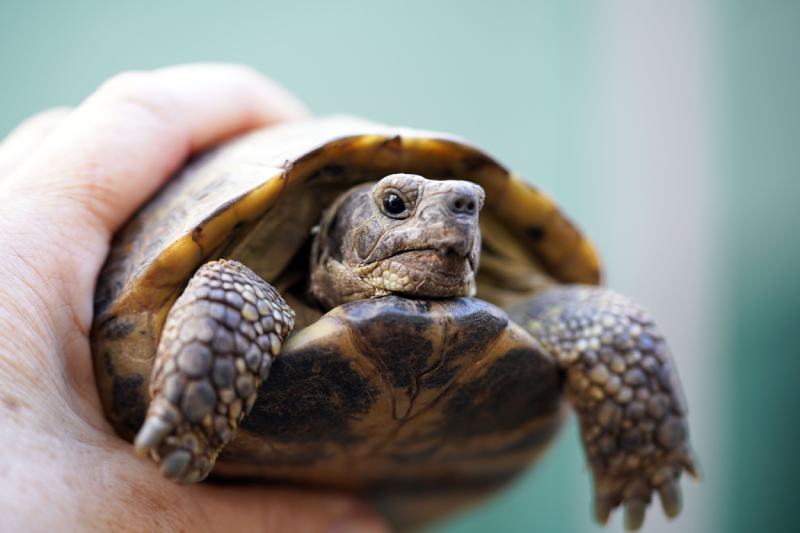
If you’re wondering just how tortoises can last so long without food, it’s all thanks to their metabolism. Tortoises have incredibly slow metabolisms that burn energy at a very slow rate. And when faced with a lack of food, a tortoise can go into a state of dormancy where its metabolism slows even more.
This metabolism is likely one of the reasons tortoises live so long. Combined with their plodding natures, which don’t require a lot of energy in the first place, tortoises aren’t using much of the energy they store. So whilst the hare may be fast, the tortoise slowly and steadily wins the race of longevity!
Tortoises also have large fat stores in their bodies that aid in letting them go without food and act as a reserve when water is scarce. When food isn’t available to them, their bodies will use these for energy.
Tips for Leaving Your Tortoise on Its Own
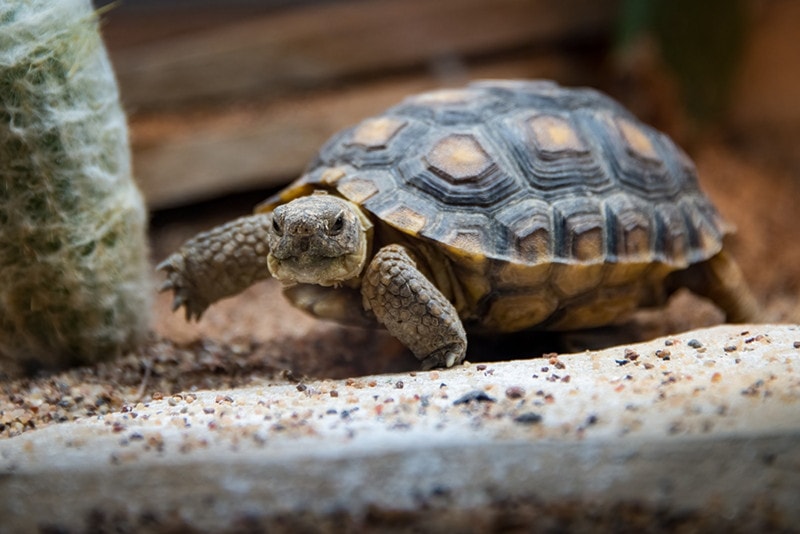
Just because your tortoise can survive for a while without food, it isn’t the healthiest thing for it to do, particularly when they are accustomed to regular meals. That’s why you should ensure your tortoise is getting fed when you’re away, and there are a few methods you can use to do that.
For one, you can include edible plants in your tortoise’s enclosure. This is one of the easiest ways to be sure your turtle always has some food at hand. Depending on the size of their habitat, here are a few edible plants you could put in:
- Dandelion
- Honeysuckle
- Mallows
- Nettles
- Pansies
- Geranium
You could also use an automatic food dispenser for pellets in your tortoise’s enclosure. It’s another easy way to be sure your tortoise is eating; plus, it can come in handy even when you’re home, for times when you’re busy. Automatic food dispensers will release food one or more times a day, depending on what you set it on, so your pet will have plenty to eat. However, if you are gone for a long time, you’ll probably need someone to refill it. A water dispenser is also a great way to ensure there is fresh water being supplied. It is a good idea to have a couple of different water supplies in case one leaks or becomes dirty.
Even if you have a good supply of food sorted, you should still arrange to have someone check in every few days to check on your tortoise, freshen up their enclosure and top up their water. A destructive tortoise could make a real mess of things if they set their mind to it! Make sure they know the Dos and Don’ts of looking after a tortoise, as not everyone knows how to care for these exotic pets! Remember that tortoise’s are unable to regulate their own body temperature, so it is essential that they are not left somewhere they will get too hot, though they can cope with lower temperatures by slowing their metabolism. Pet tortoises should not be left to brumate (reptile hibernation) while you are away, as they still need monitoring, hydrating and weighing, but providing a cooler environment will slow their metabolism, and therefore their food consumption and waste production.
If your tortoise is normally fed quite frequently, start reducing the feeding frequency in the weeks leading up to any lengthy time away so it won’t be such an abrupt change if they are only going to be checked on periodically.
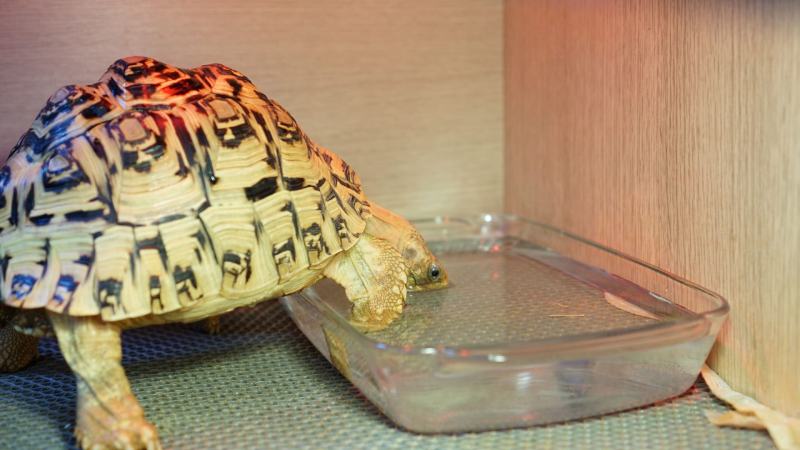
Conclusion
Tortoises can go surprisingly long without food (3 to 6 months) due to their slow metabolisms and minimal energy requirements. However, that doesn’t mean you should go off and leave your tortoise all on its own for months at a time without enough food; it is a survival technique, and not one that should be relied upon for a carefree holiday! But if you do go away for a weekend and know your tortoise will be eating less, ensure it has plenty of water!
If you’re going on vacation and will be gone for a few weeks or more, you can include edible plants in your pet’s enclosure, use an automatic food dispenser, or (best of all) have someone over to feed your pet and check in on it. This way, your pet will have enough to eat even with you away, and you can be reassured it is doing well in your absence!
See Also:
- How to Tell If a Tortoise Is Dead: 9 Vet-Reviewed Signs to Look For
- Can Tortoises Eat Lettuce? Vet-Reviewed Nutrition Facts & FAQ
Featured Image Credit: Laura Crazy, Shutterstock




